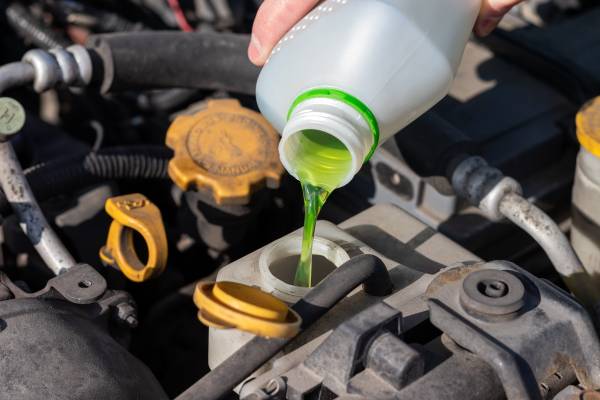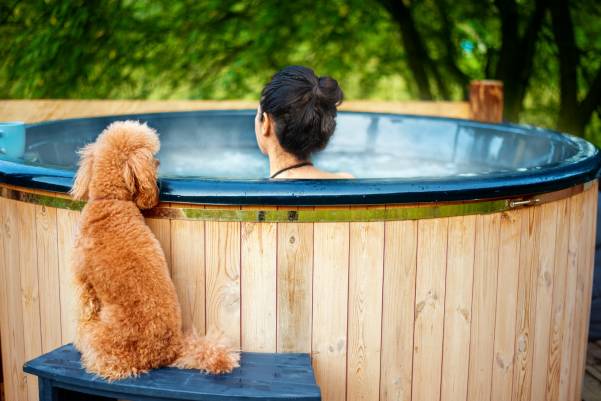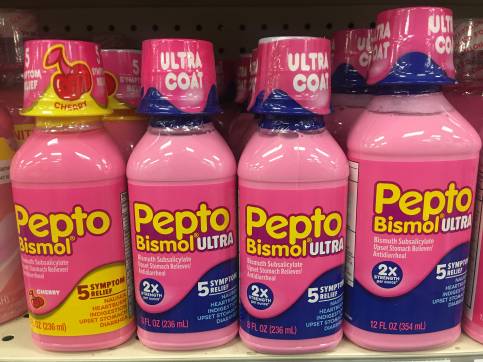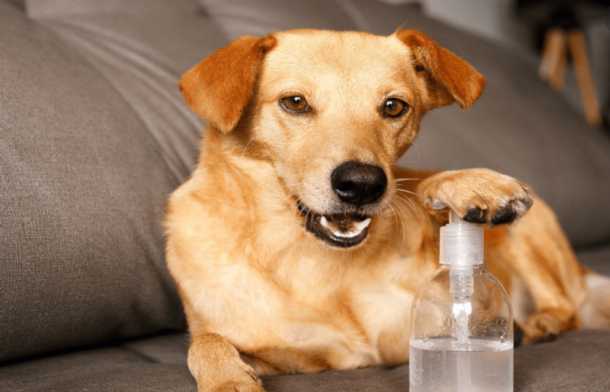Connect with a verified veterinarian in minutes. Licensed vets are available 24/7 to answer your questions. No need to worry about your furry family member.
When the weather starts to become cold, many pet parents winterize their vehicles. This can include adding engine coolant, too. Most of the time, engine coolant is kept sealed and put away. However, during the winterization process, dogs (and young kids) can find the liquid during the winterization process. But what happens if a dog drinks engine coolant?
This is a medical emergency, please call your vet
Has your dog drunk engine coolant? Are you worried the engine coolant will make your dog sick? If so, then you’ve come to the right place. We understand it can be scary when your dog drinks something like this.
In this article, we’ve put together some information about engine coolant and whether or not it can make a dog sick. Let’s get started!
What is Engine Coolant?
Engine coolant, also known as antifreeze, is a chemical that is mixed with water. The product works to keep the vehicle’s radiator from freezing during extreme cold in the winter. Engine coolant also keeps the engine from overheating when it’s very hot in the summer.
Antifreeze contains ethylene glycol (antifreeze), which is highly toxic to dogs.
Most of the time, engine coolant is kept safely out of reach of pets. However, sometimes the liquid can drip or spill on the garage floor or in the driveway. When this happens, a curious dog may go over and try the liquid. What’s more, antifreeze has a sweet taste that encourages dogs to drink a lot of the liquid.
But what happens if a dog drinks engine coolant?
Engine Coolant & Dogs
Unfortunately, even a small amount of engine coolant is enough to cause death in dogs. In addition, the liquid can cause kidney failure, which can be fatal quickly or over several days.
What’s more, the dog may not even drink the antifreeze. If the liquid has spilled on a surface and the dog walks through the liquid, he may then lick the engine coolant off his paws. Dogs can be poisoned by engine coolant in this way, too.

Review symptoms, medications & behavior to keep your pets healthy with a Vet Online in just minutes.
Ask a Vet Live NowSymptoms of Engine Coolant Toxicity in Dogs
You may notice these symptoms if your dog has had some engine coolant:
- Wobbly, uncoordinated movements
- Nausea
- Vomiting
- Diarrhea
- Drunken behavior
- Delirium
- Rapid heart rate
- Depression
- Weakness
- Seizures
- Fainting
- Coma
If you know your dog has had some engine coolant, or if you only suspect he has, then call the vet immediately. Don’t wait for symptoms to appear, as it may take several hours for symptoms to become apparent. By that time, the toxin is already in the dog’s system.
This is a medical emergency, please call your vet
The prognosis depends on how much engine coolant the dog has had and how soon he receives medical treatment. The prognosis is best for dogs who see the vet and begin treatment as soon as possible after drinking engine coolant.
Connect with a verified veterinarian in minutes. Licensed vets are available 24/7 to answer your questions. No need to worry about your furry family member.

Julie
Julie is a graduate of the University of North Carolina, Wilmington, where she studied Animal science. Though contrary to the opinion of her parents she was meant to study pharmacy, but she was in love with animals especially cats. Julie currently works in an animal research institute (NGO) in California and loves spending quality time with her little cat. She has the passion for making research about animals, how they survive, their way of life among others and publishes it. Julie is also happily married with two kids.
Review symptoms, medications & behavior to keep your pets healthy with a Vet Online in just minutes.
Ask a Vet Live Now




